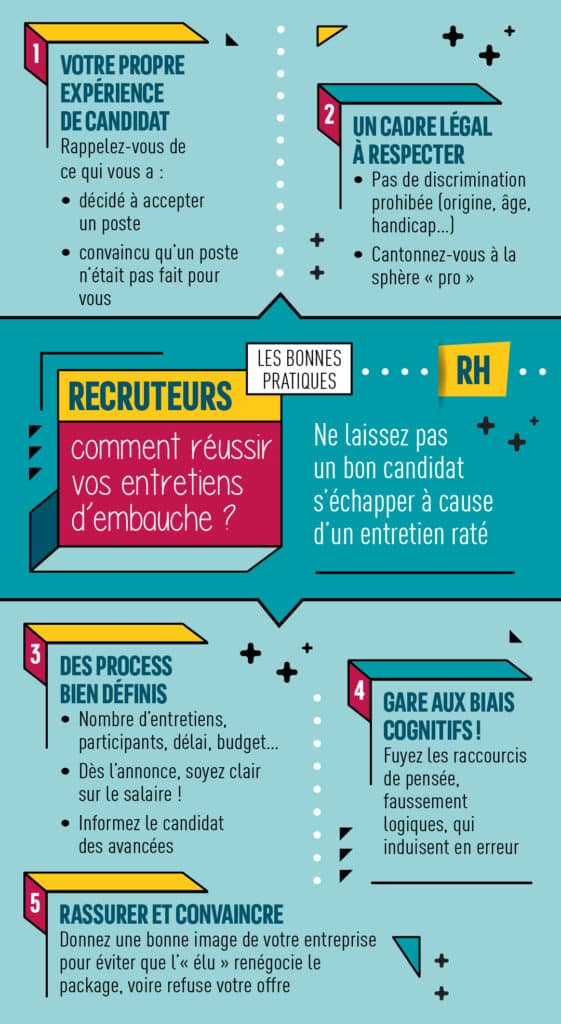[On the recruiter's side]
Whether you're a recruiter for a day or a professional recruiter, you lead or take part in job interviews. In a context of talent shortage, don't let a good candidate slip through your fingers because of a botched interview!

So, make way for good practices!
1. Draw on your own experience as a candidate
- Think back to your own job interviews: what made you decide to take the job?
- Remember also the interviews that convinced you that the job and the company were not for you.
2. A legal framework to respect
- No prohibited discrimination (origin, age, disability, etc.).
- Stick to the professional sphere: this is an opportunity to gather as much objective information as possible about the candidate's skills.
3. Frame the processes upstream
On the recruiter's side, a successful job interview also involves preparation and follow-up.
- Define your processes: number of interviews, content, people involved, deadlines, budgets, recruitment tests, etc.
- Be transparent: in your advertisements, be clear about the stages of recruitment, the job requirements, salary and benefits.
- Keep candidates informed of their progress in the process.
Candidates will appreciate this.
4. Beware of bias cognitive...
... these shortcuts of thought, falsely logical, which are misleading when making decisions, including recruitment decisions. And particularly during job interviews.
Example:
You may be tempted to unconsciously favour a candidate you can identify with, simply because they share a hobby, an opinion or a lifestyle choice with you. Don't let yourself be seduced by a candidate for reasons that have nothing to do with the job you're recruiting for!
5. Reassure and convince
You've made your choice: in most cases, the contract is signed. But sometimes the candidate may try to renegotiate the package, or even refuse your offer.
That's why it's all the more important to take care with your recruitment process: it will help you to reassure and convince people by giving a good image of your company.






